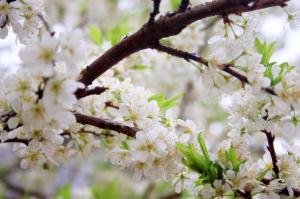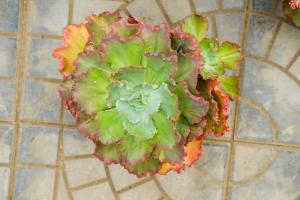Can Potted Tropical Plants Survive Brief Freezing Temperatures?
Tropical plants are known for their lush foliage and vibrant blooms, but these plants are naturally adapted to warm, humid climates. When the temperature drops below freezing, tropical plants are at risk of damage or death. However, potted tropical plants may have a better chance of surviving brief freezing temperatures compared to their outdoor counterparts.
Understanding Freezing Temperatures
Freezing temperatures occur when the temperature drops below 32 degrees Fahrenheit (0 degrees Celsius). During a freeze, the water inside plant cells can freeze and expand, causing the cells to rupture. This can lead to irreversible damage or death of the plant.
Factors that Impact Survival
While potted tropical plants may have a better chance of survival than outdoor plants, several factors can impact their ability to survive freezing temperatures:
Pot Size - plants in smaller pots are more at risk of freezing because there is less soil to insulate the roots.
Plant Type - some tropical plants are more cold-tolerant than others.
Plant Health - healthy plants are more likely to withstand extreme weather conditions.
Length of Exposure - the longer the exposure to freezing temperatures, the greater the risk of damage.
Protecting Potted Tropical Plants
There are several steps that you can take to protect your potted tropical plants from brief freezing temperatures:
Bring Plants Inside - If possible, bring your plants inside during a freeze. A heated garage, porch or sunroom can provide enough protection without damaging your plants.
Cover Plants - If bringing your plants inside isn't an option, cover them with a thick blanket or tarp to insulate them from the cold.
Water Plants - Watering your plants before a freeze can help protect them. Water acts as an insulator and can increase the plant's ability to withstand freezing temperatures.
Mulch - Adding a layer of mulch around the base of your potted plants can help insulate the roots and retain heat.
Assessing the Damage
If your potted tropical plants have been exposed to freezing temperatures, it's important to assess the damage as quickly as possible. Signs of frost damage include blackened or wilted leaves, discoloration, and weak or brittle stems. If you notice any of these signs, it's important to act quickly to prevent further damage. Cut back any damaged stems, remove dead leaves and foliage, and wait for signs of new growth before fertilizing or re-potting.
Conclusion
While potted tropical plants are not immune to the damaging effects of freezing temperatures, they do have a better chance of survival than outdoor plants. By taking the necessary precautions, you can help protect your plants and ensure their continued health and beauty.

 how many times do yo...
how many times do yo... how many planted tre...
how many planted tre... how many pine trees ...
how many pine trees ... how many pecan trees...
how many pecan trees... how many plants comp...
how many plants comp... how many plants can ...
how many plants can ... how many plants and ...
how many plants and ... how many pepper plan...
how many pepper plan...
































